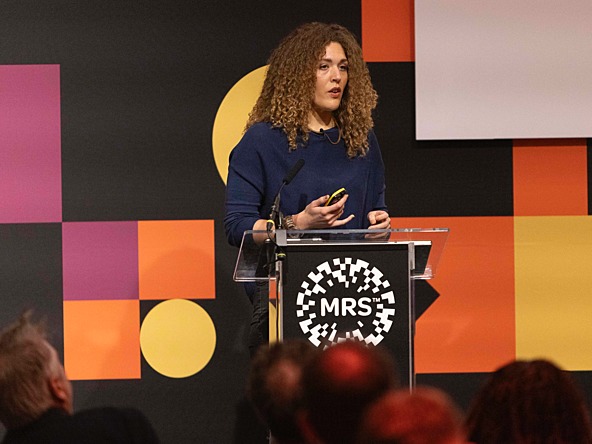NEWS12 March 2024
All MRS websites use cookies to help us improve our services. Any data collected is anonymised. If you continue using this site without accepting cookies you may experience some performance issues. Read about our cookies here.
NEWS12 March 2024
UK – McDonald's, its research partner and ad agency talked about how they convinced sceptics stuck in 90s perceptions of the fast food giant to trust in the brand.

Speaking at today’s ( 12 March) Market Research Society Annual Conference 2024 were a panel comprising Francesca Springhall, senior insight manager at McDonald’s; Dinisha Cherodian, strategy director at BAMM; and Joe Beveridge, strategy partner at Leo Burnett.
The session saw how the work marked what the panel described as a “true collaboration” between clients and agencies. The session opened with Springhall explaining how important the concept of quality is to McDonald’s relationship between itself and the consumer.
“We have to make sure we’re communicating that effectively,” she said. “We know that great quality is a great driver of trust.” Conversely, a lack of quality leads to a notable decline in trust scores.
Those qualities include McDonald’s beef’s 100% British or Irish provenance. “Over the years, we’ve been able to move the dial,” Springhall said. Thanks to promoting such virtues, endorsement levels for McDonald’s selling good quality have risen from 33% in February 2017 to 41% in July 2023.
However, she pointed out that there was still a subsection of consumers less prone to trusting McDonald’s, a group dubbed the “trust neutrals”, generally older people who have a negative perception of the brand harking from the 1990s.
This brought McDonald’s to brief BAMM on reaching that group and establish how McDonald’s could appeal to them with a research brief to understand what barriers were to convincing the trust neutrals.
Cherodian admitted it was a tricky group to get to admit to what they really thought deep down, among whom much of McDonald’s marketing barely resonated. BAMM worked with Amanda Henwood of Influence at Work, who has a background working in instilling trust.
A trust framework was established around three areas – the messenger, the cognitive bias that causes people to judge information on its source; humour, the tone of voice used in marketing comms; and certainty. or providing reassurance to trust neutrals.
McDonald’s advertising agency, Leo Burnett, strived to produce a campaign that moved on from being predominantly fact-based to one that was “entertaining and funny”. The result was “keeping up with the times”, which made negative connotations about McDonald’s food funny, a point reinforced with the line “Change a little, change a lot”.
Related Articles
0 Comments